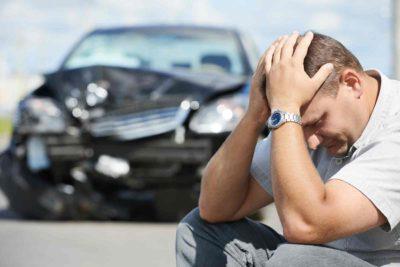It is possible for an auto accident to be covered by a North Carolina workers’ compensation claim, provided that the accident was in some way related to employment tasks. Following, we’ll discuss the circumstances in which this might be applicable and the circumstances in which it is not.
Auto Accidents that Occur During Your Commute To or From Work
Whenever an auto accident occurs while you are commuting to or from work, this is not covered by North Carolina workers’ compensation, with few exceptions. This is because driving, regardless of where you happen to be going, comes with certain risks that everyone on the road is exposed to. These risks are not unique to your profession, in most cases, so any auto accidents that occur on your daily commute will not be covered by your employer’s workers’ compensation insurance.
The few exceptions to this rule include the following:
- If your employer provides for or arranges transportation for your commute.
- If your employer supplies the vehicle which you use for your commute.
- If your employer reimburses your mileage for your commute.
- If any of these circumstances apply, then your accident may be covered by workers’ compensation, even if the accident occurs during your daily commute.
This is called the Coming and Going Rule when the accident is not covered during the commute, and the exceptions are known as exceptions to the Coming and Going Rule.
Auto Accidents that Occur During the Completion of Special Errands for Your Employer
Sometimes, an employer will send their employee on a special errand. This can happen during usual work hours or while commuting to or from work. If you do an errand for your employer on the way to work or on the way home from work, and an accident occurs, then this should be covered by workers’ compensation. An example might be stopping to pick something up for your employer or dropping something off for your employer, such as a bank deposit. This also applies to any kind of errand that you complete for your employer while on the clock. So, if you leave work to do something for your employer, and you get into an auto accident, this also will be covered by workers’ compensation. This is known as the Special Errand Rule.
Auto Accidents that Occur While Engaging in Personal Errands and Work Errands
Sometimes, an employee will run an errand for personal reasons but also complete an errand for their employer, all in the same trip. Using the example of dropping off a bank deposit, if you also cash your check or withdraw money from your own bank account at the same time that you are on the errand of depositing money for your employer, then you should still be covered by workers’ compensation if any auto accidents occur through the process of completing these errands. This is called the Dual Purpose Rule. However, if you leave work to complete a personal errand, even if you are still on the clock and your employer allows you to do so, and you are not also going to complete an errand for your employer, then this does not fall under the Dual Purpose Rule, and your accident will not be covered.
Auto Accidents that Occur When a Traveling Salesman is Commuting to and From Work
The last rule that we’re going to discuss is the Traveling Salesman Rule, though this doesn’t only apply to traveling salespersons. It is so named because traveling salespersons are the most common example, and this is also a form of exception to the Coming and Going Rule. Anyone whose job involves traveling, as the given example of the traveling salesperson, is covered by this rule. It is important, however, to note that if the traveling employee engages in a personal errand, not related to their job, then they will likely not be covered by workers’ compensation if an auto accident occurs.
To illustrate, we can look at the traveling salesperson who travels from one home to the next to sell their goods. If on the way to any home, or any different town or state, an accident occurs, then this is covered. Yet, if the traveling salesperson is on the way to a restaurant to have dinner or heading to another town to visit relatives, rather than to work, then an accident that occurs in these circumstances will likely not be covered. Yet, we must return to the Dual Purpose Rule in case a traveling salesperson is on their way out of town for two purposes, both to sell their goods with the intention of also visiting family in that town. If the employee is in the town and on their way to their relative’s house, then this does not apply. Yet, if the employee is on their way TO the town, with both purposes in mind, when the accident occurs, then the Dual Purpose Rule would apply.
Get Your Questions About Auto Accidents and NC Workers’ Compensation Answered
While we’ve provided a lot of information here about when auto accidents are covered by North Carolina workers’ compensation benefits, it can be difficult to ascertain from a bit of information on the internet how these rules and laws apply to your unique situation. The best way to get answers to your questions is to set up a free consultation with the dedicated and skilled North Carolina workers’ compensation attorneys at Brown Moore & Associates. Call us today to schedule your consultation.

